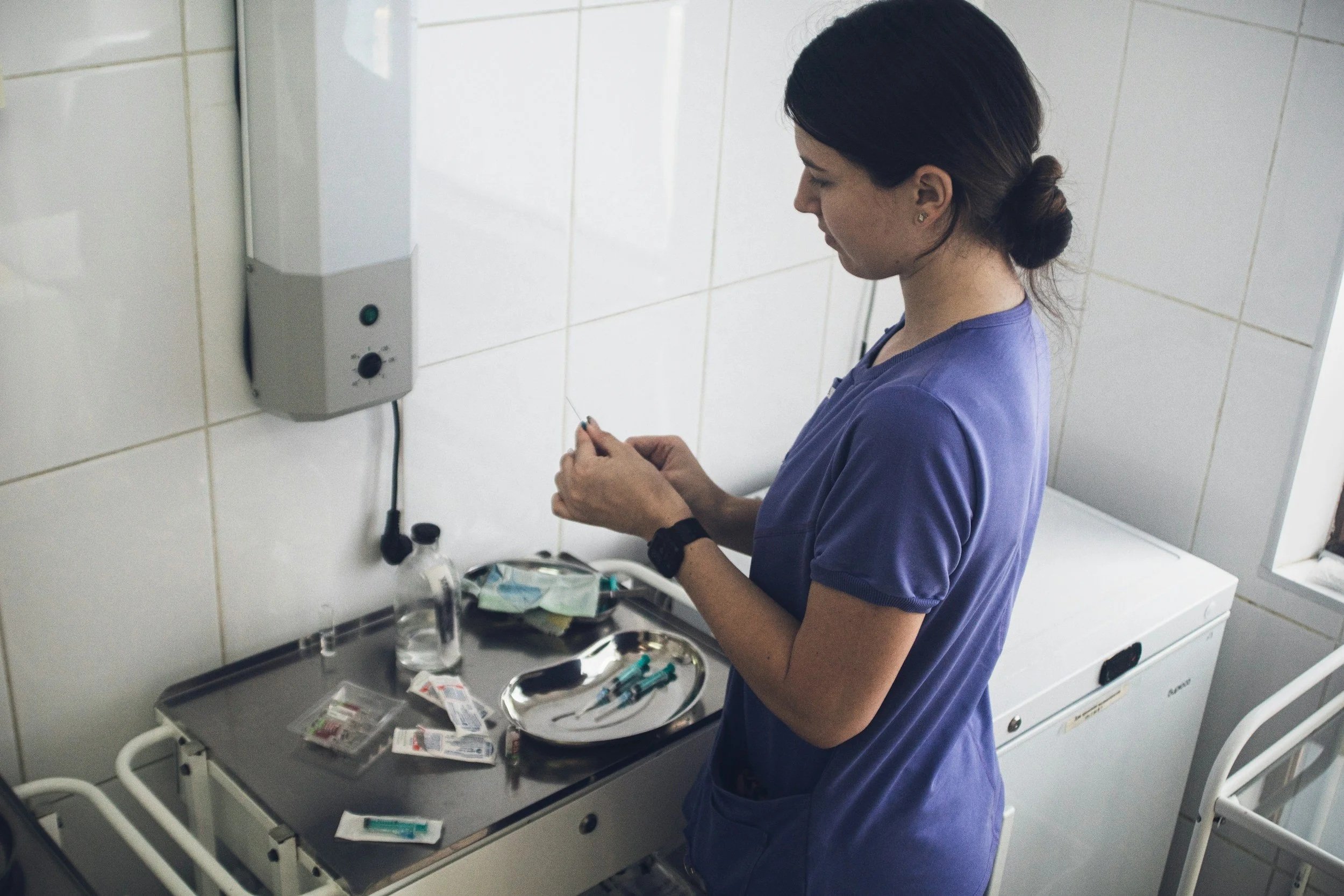Fertility preservation options for women include oocyte cryopreservation, commonly known as egg freezing. It is the process in which multiple eggs are grown from within the ovaries over a two week period. Egg freezing culminates with an outpatient procedure where the eggs are removed and brought to the lab to undergo vitrification or the “freezing” process. The eggs remain frozen in the lab until the patient is ready to use them. Many women wonder if they choose to freeze their eggs — how long will they last?

First, The Science of Storing Eggs
Cryopreservation is the process of freezing tissue in an effort to preserve them for future use. In current practice, the method of freezing eggs is referred to as “vitrification” in which tissue is frozen in liquid nitrogen at roughly −196 °C/-321°F, allowing them to stay viable for future use when needed in the future. During the time the tissue is frozen, no cell growth is occurring. Once thawed, further cellular development of the egg can occur.
Other Factors to Consider
While technically speaking the eggs can remain frozen for as long as women desire, there are other factors women should keep in mind. The goal of fertility preservation is to have eggs frozen from a time when you were younger than from the time at which you plan to be ready to conceive. Eggs from a younger person are more likely to be chromosomally normal and lead to a live birth.
The chromosomal makeup of the egg plays a pivotal role in the likelihood of the egg contributing to a healthy embryo. After the egg has divided and (hopefully has the appropriate number of chromosomes), there are still several steps along the way to a live birth that may/may not occur successfully.

First, the egg must survive the thawing process. Next, it needs to be fertilized by sperm. If successfully fertilized, this newly formed embryo must continue to grow and divide to become a more developed embryo (called a blastocyst). Finally, this blastocyst must be placed within a uterus to implant and lead to delivery of a baby. Since having an appropriate number of chromosomes within the embryo is the greatest prognostic factor in predicting a successful implantation, freezing eggs at a younger age ultimately optimizes outcomes. Even at a younger age (and even in cases where multiple eggs are frozen at a young age), there still is a possibility that when you return to use the eggs and create embryos with them it does not lead to a successful pregnancy.
If the frozen eggs do not work, many women may try to conceive at the age that they are when they are coming back to use these frozen eggs. Depending on how old a woman is at the time (and other health factors), the prognosis for having a baby naturally may be lower, particularly after 40 years old.
While not everyone may desire to use their frozen eggs in the future, considerations for alternative family building options in the event the frozen eggs don’t result in a successful outcome is important. This includes contemplating if using a donor egg or embryo or if exploring adopting are possible options for you. For patients who are not open to alternative options, delaying use of their frozen eggs may lower their chances of a live birth from their own eggs.
There is no time limit for how long an egg can be cryopreserved, but there are other considerations that should be taken into account if you are deciding to freeze your eggs. While deciding to use your frozen eggs may be intricate decision, understanding the entire process and its stages is an essential first step to take in making your choice.

Nidhee Sachdev, MD FACOG, is a reproductive endocrinology and fertility expert that practices at South Coast Fertility Specialists in Aliso Viejo, CA. Dr. Sachdev spent the early part of her education at UC San Diego for undergrad followed by medical school at UC Irvine. She then went on to complete OBGYN training at the University of Chicago Medicine followed by REI Fellowship at the NYU Langone Fertility Center.
Learn more about South Coast Fertility Specialists’ egg freezing practice on Freeze.
Considering egg freezing?
Check out Freeze’s free Compare Clinics tool - it includes pricing, locations, and more for US and international egg freezing clinics.
Answered by Dr. Roy Handelsman from HRC Fertility. Understand how ovarian cysts and ovarian surgery may impact the egg freezing process.
Answered by Dr. Rashmi Kudesia from CCRM Fertility Houston. Here’s a checklist for before, during, and after your egg freezing consultation, including 11 questions you should ask the doctor.
Answered by Valerie Shafran, MSN, FNP-C from Extend Fertility. Discover why fertility experts urge women to stop taking GLP-1 agonists before an egg freezing cycle.
Answered by Dr. Nidhee Sachdev from South Coast Fertility Specialists. Explore what AMH tells us about a woman’s ovarian reserve or how many eggs she has left.
Answered by Dr. Hade from Generation Next Fertility. Understand how egg freezing does not cause long-term weight gain yet there is a chance of transient bloating.
Answered by Rijon Charne, JD from Sunray Fertility. Explore what a reproductive estate plan entails and the situations where having one can make a big difference.
Answered by Rijon Charne, JD from Sunray Fertility. Learn more about the importance of clinic disposition forms, including what they do and don’t cover.
Answered by Rijon Charne, JD from Sunray Fertility. Discover the legal nuances that can shape your options when freezing eggs or embryos.
Answered by Dr. Joshua Klein from Extend Fertility. Learn how birth control relates to egg freezing and if you will need to stop your hormonal birth control before starting the procedure.
Answered by Dr. Jesse Hade from Generation Next Fertility. Discover the important factors that affect chances of egg freezing success in your late thirties.
Answered by Sidonia Buchtova, PA-C, C-RHI from Refresh Psychiatry. Understand if you can stay on an SSRI or SNRI when freezing your eggs.
Answered by Sidonia Buchtova, PA-C, C-RHI from Refresh Psychiatry. Discover tips to help support your mental well-being during preparation, throughout the cycle, and after your egg retrieval, especially if you have a history of anxiety.
Answered by Dr. Katharina Spies from Vida Fertility. Learn about who should consider supplements before and during fertility preservation, and how supplements could support your egg freezing cycle.
Answered by Dr. Serin Seckin from Generation Next Fertility. Understand the key differences to help you make an informed decision that aligns with your personal and reproductive goals.
Answered by Dr. Ido Feferkorn from the Reproductive Medicine Group. Learn how Polycystic Ovarian Syndrome (PCOS) may affect the egg freezing process and outcomes of fertility preservation.
Answered by Dr. Meera Shah from Nova IVF. Understand the potential risks of egg freezing to help you evaluate if it is right for you.
Answered by Dr. Hade from Generation Next Fertility. Learn from start to finish the entire process of what happens on the final day of an egg freezing cycle.
Answered by Dr. Sahar M. Stephens from Northern California Fertility Medical Center. Understand the probability of pregnancy based on the number of eggs frozen and the age at which you freeze.
Answered by Dr. Alison Peck from HRC Fertility. Discover which medications are commonly used for ovarian stimulation during an egg freezing cycle.
Answered by Dr. Kathryn Snow from Piedmont Reproductive Endocrinology Group (PREG). Understand the side effects that you may experience when freezing your eggs.
Answered by Lia Schiller, MSN, AGNP-BC from Extend Fertility. Learn why IUDs can stay in place throughout the egg freezing process.
Answered by Dr. Woo from HRC Fertility. Learn how some medications need to be stopped for an egg freezing cycle while some medications can be continued.
Answered by Dr. Dan Nayot from The Fertility Partners. Learn how artificial intelligence is providing women with more information than ever before about their eggs.
Answered by Dr. Joshua Klein from Extend Fertility. Egg freezing doesn’t impact your chance of getting pregnant naturally, because egg freezing makes use of eggs that would otherwise have been lost.
Answered by Dr. Dan Nayot from The Fertility Partners. Understand the distinction between egg quantity and quality, and explore how AI is transforming egg quality analysis.
Answered by Dr. David E. Tourgeman from HRC Fertility. Understand what options exist for what to do with your frozen eggs if you decide not to use them for IVF.
Answered by Dr. Armando Hernandez-Rey from Conceptions Florida. Learn about minimal stimulation egg freezing cycles and how they can decrease the risk of ovarian hyperstimulation syndrome.
Answered by Dr. Ido Feferkorn from the Reproductive Medicine Group. Find out how egg freezing medications work and how protocols can be adjusted if you can’t take estrogen.
Answered by Dr. Ido Feferkorn from Reproductive Medicine Group. Learn how egg freezing fits into the menstrual cycle and how timing can be customized.
Answered by Dr. Elena Santiago from Vida Fertility. Understand the ins and outs of egg freezing in Spain as a non-resident, including timing, costs, and more.
































